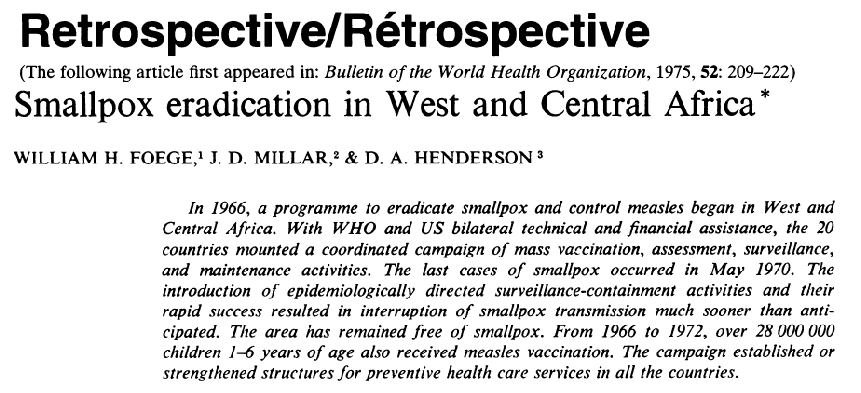I am studying here the conflicting arguments about smallpox to be found, on the pro-vax side, in James Allen’s book Vaccine (The Controversial Story of Medicine's Greatest Lifesaver) published by W. W. Norton in 2007 and, on the anti-vax side, in Randell Neustaedter’s on-line version of an article, “Smallpox Vaccine: Does It Work?” which was also published under the same title in The Townsend Letter for Doctors and Patients, volume 235, Feb./March 2003.
As I explained in the introduction to my general treatment of the vaccination issues above, these two works happen to present exactly conflicting arguments about the same questions of fact regarding the smallpox vaccine as it was used in England in the late nineteenth and early twentieth centuries. As any interested reader will quickly discover for herself, it is difficult to find a modern and direct counter argument to the anti-smallpox vaccine claims made by some leading scientists and essayists at that time. Thus it is very gratifying to have James Allen’s work before us.
A disinterested investigator might do well first to read the extract from the Allen book that I give here (pdf) in order to experience the full force of his argument against the nineteenth-century smallpox-vaccine opponents. As I’ve said, had I come to that book before reading Neustaedter, I might easily have quit my research right there. As it turned out, of course, I was familiar with equally strong positions against most of Allen’s points, and that made it necessary for me either to favor the one source as a superior authority or to go looking and see if I could find information and arguments elsewhere to decide the matter. For the reader, then, who also does not wish to decide this matter on the basis of trusting the one authority more than the other, I shall proceed point by point through the Allen arguments.
1. [Alfred Russell Lord] Wallace led the reader down a path of half-truths …. He started with a competing philosophy of health. …. Smallpox, in Wallace's view, was like all other "filth diseases"-it would disappear when nations and cities did away with "foul air and water, decaying organic matter, overcrowding and other unwholesome surroundings."
— Why call this a half-truth? I’m not sure what that would mean for any of the Wallace arguments to follow, and I suspect it is just a disparaging characterization meant to set a tone of concession with condescension that for some readers may lend Allen an aura of authority.
— Is smallpox a disease that would disappear with proper public hygiene? Notice that Allen does not claim that Wallace is wrong is saying this. Since smallpox is a contagious disease, it might very well disappear if the terrible sanitary conditions and overcrowding then prevalent in England were remedied, especially if at the same time patients were isolated and watched over carefully. (Wallace and others advocated the isolation strategy as well although Allen does not quote him to this effect. Ditto better nutrition.)
— In fact the public literature is filled with detailed explicit claims that it was improved nutrition and hygiene plus surveillance and isolation that eliminated smallpox, and not the vaccine. (Details and sources here.) The surveillance and hygiene component is even the gist of a summary WHO report on the success of their smallpox elimination campaign in Africa. Click this icon  for the title of that study and its plain-language summary in italics, which says as much. Following I give a paragraph on the topic from the body of the paper:
for the title of that study and its plain-language summary in italics, which says as much. Following I give a paragraph on the topic from the body of the paper:
The findings that only a fraction of villages were infected at any one time, that slow transmission allowed time for smallpox teams to react, and that surveillance-containment activities were effective in stopping individual outbreaks led to a growing awareness that surveillance and containment should be given a much higher priority. In 1967, the former Eastern Region of Nigeria placed primary emphasis on surveillance-containment activities rather than mass vaccination, with the result that smallpox disappeared in 5 months' time with the vaccination of only 750 000 persons in a population of over 12 million .
.

 for the title of that study and its plain-language summary in italics, which says as much. Following I give a paragraph on the topic from the body of the paper:
for the title of that study and its plain-language summary in italics, which says as much. Following I give a paragraph on the topic from the body of the paper: .
.



